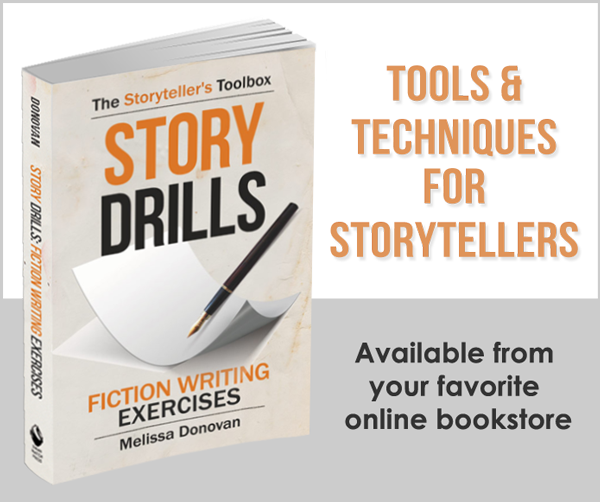In the world of art and entertainment, everything is subjective. Millions of fans loved that blockbuster film that dominated theaters a couple of years ago, but maybe you found it lacking in substance. Maybe some of the great works of literature you were forced to read in school left you wondering why they were considered important enough to be included in the curriculum. Maybe that song that your best friend plays over and over causes you nothing but agitation.
Poetry is no different. You might work your way through dozens of poems before you find one that speaks to you. And your favorite poem might be dismissed by your writer friends as campy or dull.
You can’t please everyone. No matter how great a poem is, someone, somewhere is going to hate it. That doesn’t mean the poem is good or bad; it just means it doesn’t appeal to everyone’s taste.
Taste is subjective. But there are some elements of poetry writing that are objective; we can assess a work of poetry (or any work of art, for that matter) while separating our personal tastes and preferences from our objective understanding of what makes a good poem.
All Poems are Good
One some level, all poetry is good, because it’s a form of expression. There is real value in the act of making a poem, even if it doesn’t catch on with readers or get published. Many people come to poetry because it’s an accessible form of self-expression, and it’s highly therapeutic. Teens, in particular, find poetry writing to be a useful tool for navigating the dynamic thoughts and feelings they experience as they transition from childhood to adulthood.
The very act of writing a poem is a reward unto itself, and that is a good thing. But writing poetry as an act of creation and writing poetry that is meant to be read, appreciated, and valued are two different things.
Poetry that’s meant to be shared with the world will undoubtedly undergo scrutiny, from public criticism to reviews to audience reactions at an open mic. If we, as poets, want to create work that will be valued, then fortunately there are some things we can do to increase the likelihood that we’ll produce good poems that appeal to an audience.
The Guidelines of Good Poetry
It’s always important to note that some of the best art breaks the rules of conventional wisdom. For every piece of writing advice, there’s some example of written works that defied convention and succeeded. But guidelines are not rules. They are guides, meaning they are designed to help you find your way; they are not a roadmap etched in stone to be followed exactly.
The guidelines below are not guaranteed to produce a good poem, but they will certainly give you an advantage.
Rhythm and meter: One of the identifying features of poetry is its musicality. Whether or not a poem rhymes and regardless of whether it’s written to a metrical form, it should have rhythm and meter, a cadence. This can be achieved through the sounds of the letters, the number of syllables in the words, which syllables are stressed, and the length of the lines.
Word choice: Choosing the right word can mean the difference between a poem that soars and a poem that crashes. Words are to the poet what colors are to the painter, what clay is to the sculptor, what the instrument is to the musician. Words matter; choose them wisely.
Vivid images: Images show readers what’s happening rather than telling them. We don’t want to hear that the old man was sad; we want to see him struggling to hold back a sob and blinking away the tears in his eyes.
Economy of language: In most cases, if you can express something clearly and fully in a hundred words, you shouldn’t use a thousand. Concise language is more memorable and resonates more deeply than verbiage, which messy, confusing, and ultimately, forgettable.
Emotional and intellectual quality: Most readers want to have an experience, and they want to engage with a poem on an emotional or intellectual level. Better yet, give readers poetry that resonates on both levels. Make them think, and make them feel.
Engage the imagination: If everything is laid out in so much detail that nothing is left to the imagination, then it will be difficult for readers to participate in the poem, and remember — readers come to the page for an experience. Letting them use their imaginations makes a poem more personal, more immersive, and more enjoyable.
Read all the poetry: The more poetry you read, the better your own poetry will become. Imagine a musician who doesn’t listen to music! Poets should take in poetry, know the canon, and understand their personal tastes and how to tell a good poem from a great one.
Make a Good Poem
What do you think makes a poem good? Do you focus more on your personal expression or on making poetry that others will appreciate? Share your thoughts about poetry by leaving a comment.





Thanks! Sharing…
Thanks, Bette.
Excellent article..
Thank you so much…
You’re welcome!
Lovely article. I’ve bookmarked it and will probably reread it a few times. Thanks.
Thanks, Elizabeth!
Great article. But I usually write following my vibes.. My gut feeling.
One of the things I love about writing is that there are so many ways to do it. We each get to discover what works best for us. I often follow my vibes or gut feeling, but I also sometimes need to be more strategic. Different methods for different projects!
Thank you so much for this. This is exactly what I was out here looking for…
You’re very welcome.
There’s a question, I think, of defining who the audience is. Much can be forgiven if the writing is intended to remain personal. Different considerations apply if intending to read to or be read by an audience.
Personally, I feel there is a great imbalance, with much that should be personal being presented to wide audience, without ever being written with them in mind.
I agree that writers should consider who a piece is for, especially before publishing it.
Thank you for this article. Word choice resonates the most with me as something that can really elevate a poem. Sometimes, there’s just that word that really creates an image or gets a message across, and it’s always great when you find it, either in your work or that of others.
I agree one hundred percent, Tina.
The tongue of the bell
does not strike bronze
to make its noise, it strikes
the void within the form
to evoke the sound
of emptiness.
Thank you for sharing this.
Yes, every art form is subjective and is going to have its proponents and detractors. You can’t please everyone so please yourself.
From the very start, I found that rhyme placement was a way to grab the reader’s mind, and too many often detracted from the imagery or idea that I was trying to convey. So, some of my poems have very few, but when they occur, it’s effective.
I try not to use an unfamiliar word or words that can’t be immediately understood by the context unless, of course, that important rhyme gives exigence to incorporate the word “reticent” (or taciturn, for that matter).
Write about what moves you and you can’t go wrong.
I agree. I like these methods too.
I very been writing poetry since I was 14. But have kept it a secret. While in college my guide dence council who was a bread loaf teacher,challenged me to enter poetry contest. I won some Awards. But that was the only time. I don’t write inany rhyming style. Its bit like Whitman. Its gift i truly don’t comprehend.
Well, I’m not sure how long ago you were fourteen, but I’m curious about why you keep it a secret. Nobody should have to hide the things they enjoy doing, as long as they aren’t hurting anyone. With that said, I know that there can be various social pressures, and I don’t know your situation. In any case, I hope you keep writing and that it brings you peace and joy.
Great overview, and a very useful article. Thank you, and have a nice rest of the week, as a beautiful weekend! Michael
Thank you so much. I really appreciate your kind words.
To my mind a great poem presents the complex simply.
There are certainly great poems that simplify the complex.
I disagree with this article. In my PROFESIONAL opinion, not every poem is a good poem. Only what you perceive to be a good poem, is a good poem. ALSO, the message you get from a text has to be IMPACTFUL, possibly changing the world view the reader has as a WHOLE. this is but my PROFESSIONAL opinion though.
I’d be curious to know what your PROFESSIONAL qualifications are, exactly?
This article does not say “every poem is a good poem.” In fact, this entire article is saying that all poems are not equal in literary quality. You appear to have gotten hung up on the following statement: “One some level, all poetry is good, because it’s a form of expression.”
This remark simply acknowledges that the act of expression is a good thing. You can write a terrible poem, but the act of writing it, of expressing yourself, or doing something creative, is good. Writing is therapeutic, and a notebook full of poorly written poetry might not get published or win prizes, but it can be good for the author, in many ways.
This statement therefore contains an important qualifier that you decided to ignore when you shared your disagreement. Please read more thoroughly and carefully before coming to the comments to argue with ideas, especially if you’re going to misrepresent was was actually expressed in the original post.
I agree wholeheartedly about every poem is a good poem *for someone*, even if only the writer.
Personally, I do not like free verse. To me it’s simply prose randomly broken into lines. Not that it’s not often poetic.
I chanced upon someone reading a free verse poem on the radio. I did not realise it was a poem until someone mentioned the fact after the reading.
Having said that, to someone who enjoys it, it is poetry. No one can say it isn’t unless everyone says so. Like modern classical music. Some say it’s not music, but as long as there are people who say it is, then it’s music.
Poetry can rhyme or not, but in my opinion, it must have rhythm. Not random line lengths. My poetry has rhymes, no rhymes, but always rhythm.
My opinion
Helpful essay. I often write poetry for my blog. I am often (but not always) too easily satisfied with what I have written. I am continuously surprised that some readers seem to really like the poems that I think are doggerel at best.
Thanks!
A useful article
Thanks, Robbie!
Thank you for this useful post on how to write a good poem. It serves as a checklist before hitting the ‘Publish’ or ‘Submit’ button.
Awesome piece!!!
Thanks so much for sharing this!!
Chuck
😁🎁🌹🌹
You’re welcome.